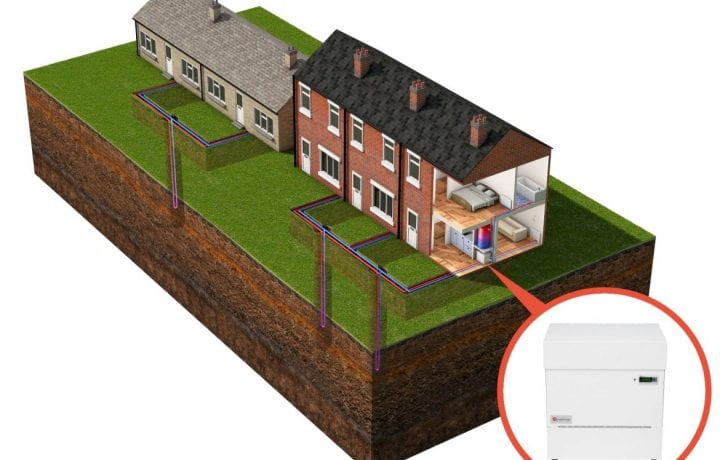The National Measurement and Regulation Office has announced that the feasibility study and requirement to fit heat meters in accordance with The Heat Network Regulations by the 31st December 2016 has been delayed until 2017. Read Kensa’s latest blog outlining what this means, how this affects you, and how you can get ahead of the game and avoid the headaches and cost of compliance whilst enjoying many additional benefits with micro district ground source heating.
The heat metering viability tool is currently being revised by the Department for Business, Energy and Industrial Strategy (BEIS), with amended regulations to be published imminently in 2017.
Who is affected?
Companies that supply and charge for heating, cooling or hot water to a final customer through communal heating or a district heating network including multi-tenanted buildings with a shared heating and cooling system.
What does this mean?
There is now some breathing space to assess and upgrade your stock’s heating systems to feature individual metering and billing. Unfortunately for schemes featuring communal heating systems with single pipe distribution, the installation of metering is only possible if an entirely new infrastructure is installed. Coupled with the cost of the installation of new metering and communication equipment, this can make for an expensive compliance option. Furthermore, the changes will not necessarily be to the benefit of the resident as it is likely to result in an increase in running cost due to ongoing management and administration costs and profit for the system owner.
But there is another way; you could upgrade your stock to be exempt from the regulations entirely, to the financial benefit of you and your residents.
How can I be ‘exempt from the regulations entirely’?
Kensa’s micro district ground source heat pump solution is exempt from the Heat Network Regulations; each tenant has their own energy bill with no centralised billing. Each resident has a ground source heat pump installed within their property, which means they will pay only for the heat they use as their individual appliance is connected to their electrical supply. The super-efficient heat pump draws freely available heat energy from the ground; the heat pump is connected to the ground via a communal ground array, which provides efficiencies in terms of design. The income stream will ensure a significant return on investment against the marginal cost of the ground source heat pump verses a mains gas alternative.
The micro district ground source heat pump solution also provides the following benefits over central plant:
- The removal of the need to install insulated pipework at significant cost
- The removal of all system distribution and pumping losses; central plant systems constantly pump heat across the entire system to be sure heat and hot water is readily available for all dwellings at any one time, whereas micro district systems operate on an individual dwelling basis – if a property is vacant there is no call for heat so the system does not operate – a central plant system would not be able to tell if a property is vacant, and therefore is working, and costing, around the clock.
- Removal of overheating in corridors and risers due to a permanently pumped hot water circuit, resulting in lower running cost and more comfortable conditions.
- The cost of meters are removed reducing capital costs and service and maintenance burden.
- Removal of any need for the system owner to administer and manage billing to residents and any potential issues with inaccurate heat meter readings.
- The performance of the ground source heat pump is equivalent to a gas boiler, with a lower running cost.
- Unlike a central plant each resident will have the flexibility to shop around for their lowest energy price; a traditional heat network leaves them beholden to the network owner and the cost they decide to charge.
Further information:
- For official guidance from the Department for Business, Energy and Industrial Strategy (BEIS) click here: https://www.gov.uk/guidance/heat-networks
- To learn more and for a no obligation project model contact Kensa on 0845 680 4328 or email info@kensaheatpumps.com.


